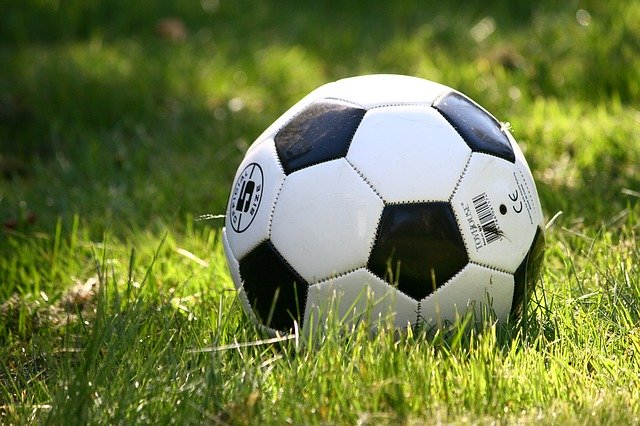
A soccer fullback is a versatile player who plays in the wide advanced position. His role is to execute precise passes and crosses. His main objective is to cross without being stopped by any defenders. Sometimes players can be in great attacking positions and miss a cross. As a result, they have to run a long distance to their defensive position.
Position
A soccer team's fullback is an important player. Fullbacks are responsible for following the opponent's runs, but they also help their teammates by pushing up the flank and making overlapped runs. He must also be aware of opponents playing offside. He can also pass the ball to the winger or centreback. Fullbacks shouldn't lose the ball very often.
Movement
A fullback is an integral part of defending a team. They are responsible for tracking opponents and preventing them from crossing into the box. The fullback should have the agility to stop a cross with either one of his feet. Once they are in possession, they must be able quickly to move towards wide attackers.

Timing
Fullbacks in soccer play a vital role in team play. Modern fullbacks are often the ones who receive the most ball. They need to be skilled at passing and tackling. They need to be able and confident to place the ball behind them. They do not have to be as strong or agile in the air than a central defensive defender but they need to be able and accurate to time their headers.
Physical attributes
A soccer fullback's physical attributes are crucial. The fullback must be able and able to alter their body to be able receive the ball. They should also be able to quickly switch between attack and defense, and have excellent awareness and react skills.
Offside rule
In soccer, there is a rule called the offside rule. When a player receives the ball, he must be within his own penalty zone. An attacking player may be in front of his opponent, but behind the ball in some cases. In such cases, an attacking player may be behind the ball and ahead of his second-last opponent.
Communication with the fullback
Communication between players is vital in soccer. Communication between players can be done verbally or non-verbally. Clear and concise instructions are crucial when communicating during a game. Verbal communication between teammates can lead to more effective strategy and efficiency. This type of communication is also linked to motivation. But soccer players might not always be able understand each others' signals.

Skills required of a soccer fullback
A fullback is an important part of a soccer team's defense. They play an important role in protecting the team's goals and winning the ball back to the opposition. Fullbacks have excellent field vision, making them well-suited to track wingers, intercept crosses, and limit space inside the box. Fullbacks have the responsibility of controlling possession of a ball. A fullback who is skilled at ball control and speed will be a good player.
FAQ
What does a soccer attacker do?
They are often the most skilled passers on the pitch. They are the ones who get the ball from forwards or midfielders and then pass it to other players. They are agile and fast and can score many goals in a match.
How do I know if my child is ready to start playing soccer?
Once children can kick or throw a soccer ball into the air, they should be able play soccer. They should also have the ability to catch and run after the balls. Before your child joins a league, ensure that he/she is aware of all safety precautions.
What does the letter "A" stand for in soccer?
The letter "A" is for Association Football. It is the official nickname of soccer. The association word comes from the fact the game was originally developed by Oxford University students.
Statistics
- From the 1850s onward, industrial workers were increasingly likely to have Saturday afternoons off work, and so many turned to the new game of football to watch or to play. (britannica.com)
- After hosting an entertaining World Cup finals in 1994, the United States possessed some 16 million football players nationwide, up to 40 percent of whom were female. (britannica.com)
- Even with the new issuance, control of the club will be retained by the Glazer family as they will retain 67% of B shares which have voting power, so little will likely change in the general approach taken to the finances of the club. (sites.duke.edu)
- the estimated cumulative television audience for the 2006 World Cup in Germany was 26.2 billion, an average of 409 million viewers per match." (en.wikipedia.org)
- Get 10% off your first purchase using code BLOG. (technefutbol.com)
External Links
How To
How to improve passing in soccer
One of the most important skills in football is passing. It involves moving and holding the ball. You must be able quickly and accurately pass the ball.
Knowing the right places and times to make passes is key to learning how to pass effectively. They should also be practiced until they become second-nature. There are four main types: long balls (short passes), long balls (long balls), through balls (through passes), and through balls (through passes). Short passes are usually made at close range and are usually made to move the ball forward. Long balls are thrown out towards the opponent's penalty area. Through balls can be passed directly into the pitch's middle, and through passes to another team member are used to pass the ball to your goalkeeper.
When making a pass, try to keep it simple and make sure that your teammate has enough space before he receives it. You can lose your balance and even fall if you give your teammate too much space. You should cover your teammates whenever possible when playing defense. This will prevent your opponents from attacking you.
Remember that the ball should not be thrown away during a game. Throwing the ball away makes it harder to score because the opposing players could take advantage of your mistake. Always look for scoring opportunities and open spaces. You should always look for gaps in your defense and exploit them.
Playing better is possible by practicing daily. For the next match, practice some drills. You should warm up well before you start a game. Then, give your best during the game. Keep your head calm and cool. These things will help you perform better during a game.